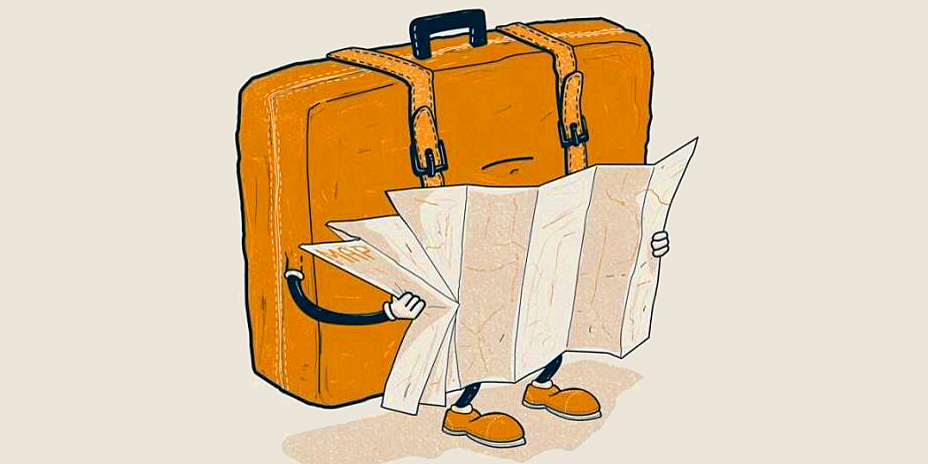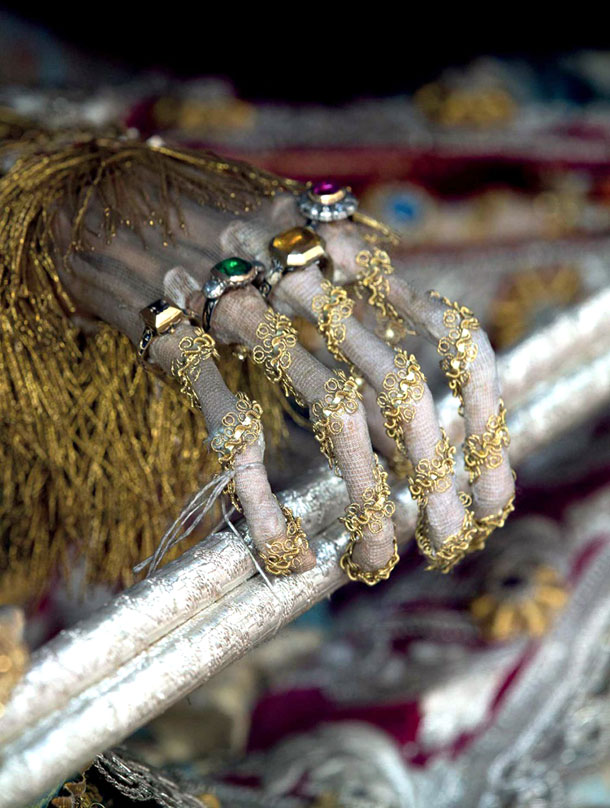
It’s everyone’s travel nightmare: being tossed around from flight to flight, a quick 45 minute layover turning into six hours, and when you finally stand at the baggage carousel as everyone else grabs their luggage and heads home, you stay there, stomach sinking, the great metal contraption going around and around as you realize your bags didn’t make it.
I’ve somehow successfully dodged the missing luggage catastrophe over my years of flying, and this is with living across the country from my family for the past 8 years. It’s a miracle my falling apart suitcases have always managed to make the journey, even if they’ve arrived in pieces (yes, this happened once).
But I had a sneaking suspicion that, with the hundreds of cancellations of flights for the holidays, all my flights weren’t going to work out quite the way I planned. It was my last leg of the trip (a cancellation that involved rebooking to arrive at a different airport, spending six hours exploring my layover airport) and I arrived back in DC to discover an empty luggage carousel. I was far from the only weary traveler that day — a family of five discovered they’d be spending a night at their layover city. The man next to me told of his woes going through three canceled flights, making me slightly guilty for my frustration at just one. Earlier in the day, I was sympathetic to the shared struggles and strife of my fellow passengers, but as the day wore on my focus became more narrow-minded. Misery loves company, they say, but by the time I landed in DC I was feeling too selfish to even share that.

All of us forlorn and redirected passengers were off the plane, waiting at the carousel when we realized no more bags were arriving. Tears of frustration were springing up. All of us stood exhausted and not eager to wait in another line to then be passed off to an anonymous customer service phone line. “We aren’t really sure where your bags are,” the woman told me. Stomach dropping. I turned to look at the line of people behind me. They were all in the same boat and would be told the same frustrating phrase I had just heard. For a fleeting moment I thought, “they couldn’t possibly have lost all of our stuff. They’ll find out where it all is.” Zooming out to remind myself others were in the same position made the situation feel solvable and minute, but at that point I just wanted to wallow.
Riding back to my house that night I realized how much I cared about the things packed into my bag. The new running shoes I’d only worn a few times. The candelabras my sister had bought me for Christmas, my brand new copy of Tolkien’s Beren and Luthien, my favorite red shoes. All of those things flashed through my mind. “They owe me $3,000 if they officially lose my bag,” I thought grouchily to myself.
I always unpack the day I get back from a trip. I long for the reset after traveling, everything getting cleared away, back to order. I’ll stay up ridiculously late to keep from “living out of a suitcase.” Needless to say, it felt weird to just flop into bed that night. I was still frantically thinking about my lost luggage, such is the lot of being an anxious sort of person. I forced myself to look at my closet that was still very full of clothes. If I never saw any of the contents of those bags again I’d be fine. After all, I had heat. My bed was warm, I had a roof over my head, why couldn’t I just be grateful for that? Wasn’t it all enough?
 After my lost-luggage-episode, I grasped in a small way why ancient Egyptians and Vikings were buried with their stuff. We are attached to our things, and we don’t want to be parted from them. Beyond mere utility, what we own is often symbolic of our identity or status. Possessions might signal wealth, honor, or achievement. They can be tokens of belovedness, gifts received and cherished. We believe that they are important to us, enough to follow us — even into eternity. Even though my own possessions were less than essential needs, I was still left feeling askew. Laying in bed, I convinced myself that my life would somehow be lesser if my baggage went on a permanent vacation.
After my lost-luggage-episode, I grasped in a small way why ancient Egyptians and Vikings were buried with their stuff. We are attached to our things, and we don’t want to be parted from them. Beyond mere utility, what we own is often symbolic of our identity or status. Possessions might signal wealth, honor, or achievement. They can be tokens of belovedness, gifts received and cherished. We believe that they are important to us, enough to follow us — even into eternity. Even though my own possessions were less than essential needs, I was still left feeling askew. Laying in bed, I convinced myself that my life would somehow be lesser if my baggage went on a permanent vacation.
In Ecclesiastes — that a short, powerful, but rather bleak book, — we are told: “As everyone comes, so they depart, and what do they gain, since they toil for the wind?” I was incessantly fretting over nothing, toiling after the wind. Losing them, if only for a while, I was learning just how “meaningless” those bags actually were. The Bible is full of characters who lose everything. Abraham is told to leave his home, there certainly wasn’t room on the ark for all of Noah’s possessions, and Joseph is parted from his “coat of many colors” in the most brutal way. Perhaps our clearest example of someone losing everything is Job, a noble servant of God who sees his wealth, his family, and his own health taken from him. He receives bad news after bad news, but it isn’t until he is told of the death of his children that he goes into true grieving. The donkeys, horses, and sheep aren’t worth grieving over, but the loss of human life is when he collapses. And in that moment he echoes Ecclesiastes, “Naked I came from my mother’s womb, naked I will depart. The Lord gave and the Lord has taken away; may the name of the Lord be praised.”
Job wisely understood that none of our stuff comes with us. What we own are all just borrowed gifts to ease our time on earth. They should be enjoyed — gifts are meant to be enjoyed! — but when the rich young man approached Jesus he was told to sell everything he had and give it to the poor. Disheartened by the saying, the man went away sorrowful. Perhaps Jesus said this because he saw a young man toiling after “stuff,” lovingly diagnosis what ailed this wealthy individual. And perhaps he saw an anxious person, laying in bed, fretting about lost luggage. When we are asked to tithe or to sell our possessions, it’s not that God wants to deprive us of good things. He is more like a doctor trying to heal something that might be rotting us from the inside out.
My lost luggage caused me further headache and anxiety after a long travel day, and yet this stress also forced me to reassess my love of “things” That perhaps a 24 hour parting with them might be healing to me. The next morning I woke up feeling much more hopeful, everything is better and brighter in the morning, but also, feeling a new peace that hadn’t existed before. When clenched fists are loosened from their death grip on our possessions, we are awaken from our strange trance to realize that life is somehow better because of our “things.” The story has a happy ending, the luggage was recovered. But I did receive a strange healing from this incident. I still love my throw pillows and cute mugs, I certainly appreciate my “things”, but they’re not the gifts that ultimately matter. They’re not what has made me, me. Only the Creator has done that, and at the end of the day, all that matters are the gifts he gives. What I receive, but never own.

COMMENTS
Leave a Reply












